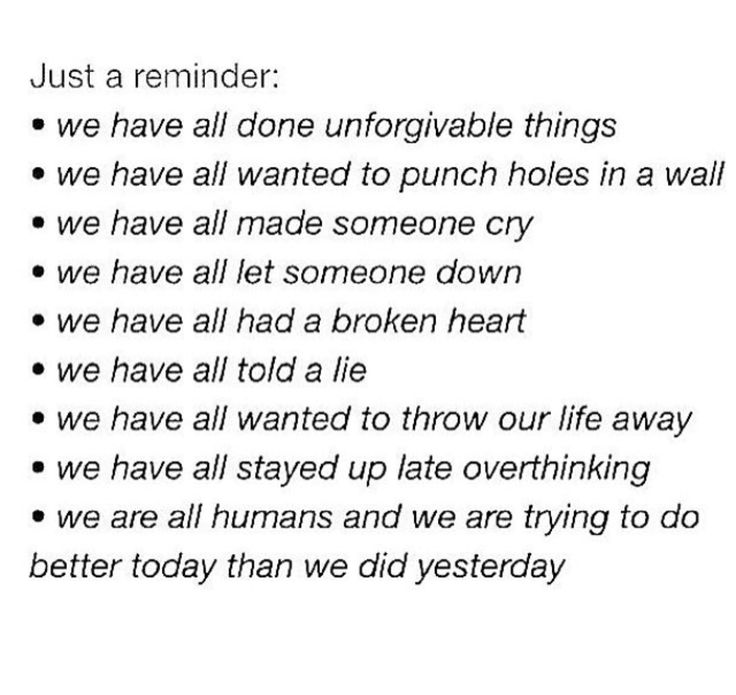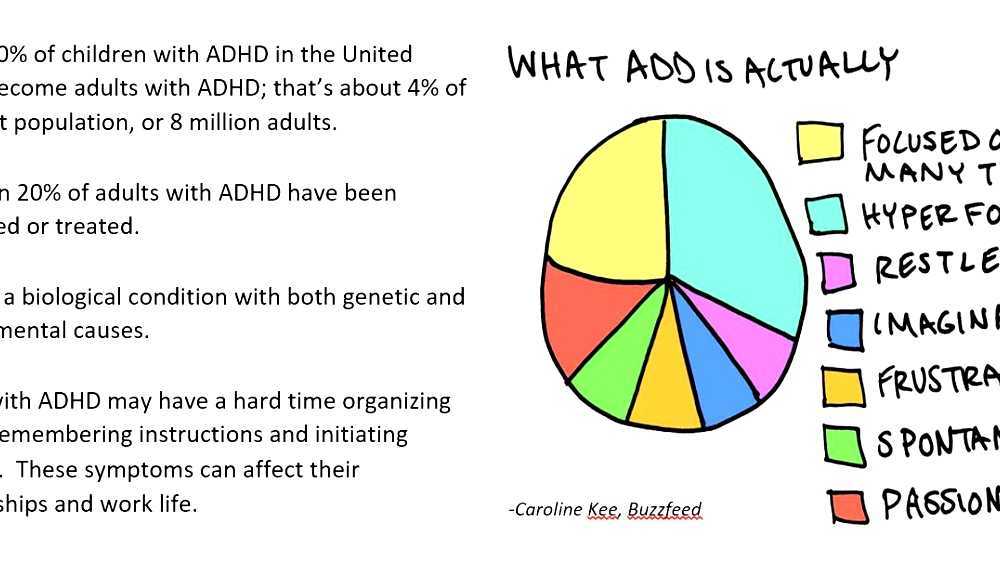What to do if someone is crying
10 Verbal Responses To Someone Crying
Caring Can Be DifficultSeeing someone you care about crying can be incredibly difficult to experience. Their head is down, feeling overwhelmed. In that moment, knowing what to do or say can be challenging. He or she is feeling incredible vulnerable with you, and you certainly don’t want to respond in a way that hurts them further. Not knowing how to respond only increases the awkwardness.
Here’s something important to note: something about you has allowed the sad parts of that person to show up. This person feels connected to you, and you have cultivated a safe place for them to be vulnerable if they’re opening up to you in this way. What you’ve already done is huge! And I commend you for creating that space for your person to show up and be seen.
Holding Space For Difficult EmotionNow comes the difficult part: holding the space. So often when a person we care about it feeling deeply, we want to swoop in and fix it. With positivity we bolster the person! Surely they just need to see an alternate perspective, right? Not necessarily. While your intention may be coming from a loving place, moving quickly to fix-it mode or positivity can feel dismissive. This can leave the vulnerable person feeling unheard.
This doesn’t mean the positivity bubbling inside you can’t ever come out. There is a time and place for encouragement! Holding space for the other person to truly feel an emotion and connect you on through the depths of experiencing emotion is vital for that person’s process. It isn’t until acknowledgement of a feeling happens that part of our brains turn back on to logically process next steps.
These responses below will help you hold the space and listen well to what is going on with your loved one. As mentioned above, the fact that they trust you is incredible. Don’t discount the power of simply being with someone when they’re feeling emotions. Also tuck these responses away to communicate empathy, interest and connectedness in a moment of sadness and crying.
- “It’s okay to be sad.”
- “This is really hard for you.”
- “I’m here with you.”
- “Tell me about it.”
- “I hear you.”
- “That was really scary, sad, etc.”
- “I will help you work it out.”
- “I’m listening.”
- “I hear that you need space. I want to be here for you. I’ll stay close so you can find me when you’re ready.”
- “It doesn’t feel fair.”
The overall goal is for you to be fully present to the individual. There are so many ways to do this with your body language, shared history, and attunement. Verbal responses are simply another way for you to connect.
If you know someone who is experiencing overwhelming emotions and life circumstances, they may benefit from the connected and safe space of seeking professional help from a therapist. At Optimum Joy we specialize and work with a variety of people. If you’re wondering if a referral is appropriate or simply don’t know how to make a referral for someone you care about, I invite you to call our office and consult with a therapist on staff. We can help you help your loved one who is hurting. Don’t hesitate to reach out.
We can help you help your loved one who is hurting. Don’t hesitate to reach out.
Written by therapist Alexandra Hoerr
How to Comfort Someone Who’s Sad/Crying
How not to comfort someone. For how to do it, see the tips below.
With our archives now 3,500+ articles deep, we’ve decided to republish a classic piece each Sunday to help our newer readers discover some of the best, evergreen gems from the past. This article was originally published in May 2016.
Have you ever had someone come to you crying?
Maybe your wife had a brutal day at work and fell apart when she came through the door.
Or your mom lost it while reminiscing about your deceased dad.
Or your usually stoic buddy broke down about his girlfriend dumping him.
Interacting with someone who’s sad and hurting can be awkward; you want to be there for them, show your empathy, and strengthen your relationship, but it’s hard to know how to act and what to say. A lot of us end up sitting there uncomfortably, offering some awkward back pats, while saying, “There, there, it’s okay.”
A lot of us end up sitting there uncomfortably, offering some awkward back pats, while saying, “There, there, it’s okay.”
I know a lot of guys out there struggle with this scenario, because I’ve gotten more requests to cover this topic than any other.
I held off on doing so, because while I thought I did a pretty good job in this area myself, I wanted to see if there was real research out there concerning best practices. Fortunately, I recently came across some great tips from Dr. John Gottman, a professor of psychology and arguably the foremost relationship expert in the country. Today I’ll share his advice, as well as the tips I’ve gleaned from personal experience, on how to comfort someone who’s sad, so you can help them in their time of need and be a better son, friend, and husband/boyfriend.
How to Comfort Someone Who’s Sad/Crying
“Witness” their feelings. One of the most difficult things about trying to comfort someone who’s hurting is feeling like you don’t know what to say. Fortunately, most of the time people aren’t actually looking for you to offer specific advice or pearls of wisdom; the most comforting thing in the world isn’t an inspiring platitude, but feeling like someone else gets what you’re going through, and that you’re not alone in the world. The thing people want most when they’re hurting is for you to act as a sounding board and to show understanding and empathy. Gottman calls this “witnessing” your loved one’s distress.
Fortunately, most of the time people aren’t actually looking for you to offer specific advice or pearls of wisdom; the most comforting thing in the world isn’t an inspiring platitude, but feeling like someone else gets what you’re going through, and that you’re not alone in the world. The thing people want most when they’re hurting is for you to act as a sounding board and to show understanding and empathy. Gottman calls this “witnessing” your loved one’s distress.
So to start off comforting someone, simply describe what you’re seeing/sensing. Say something like, “I know you’re having such a hard time with this,” or “I’m sorry you’re hurting so much.”
Also affirm that you hear what they’re saying by saying it back to them in your own words.
So if your wife, who’s in tears, says:
“My boss told me I wasn’t cut out for my job, and that if I make one more mistake he’s going to fire me.”
You would say back:
“It sounds like you’re upset because you haven’t been doing as well as you’d like at work, and you’re worried that you’re going to lose your job. Is that right?”
Is that right?”
Affirm that their feelings make sense. You want to not only acknowledge that you hear the person’s feelings, but that they make sense to you. It’s lonely to feel like you’re coming at something from out of left field.
So you might say to your friend who’s going through a bad break-up: “Of course you’re devastated. I honestly was depressed for months after Emily and I ended things.”
Keep in mind that while sharing your similar experiences shows empathy, you want to be careful not to pivot the focus of the conversation onto you. Don’t try to one-up the person by sharing a story of how you’ve had it worse, and don’t go on and on about your own experience. Instead, briefly share how you’ve been through something similar, and then return the focus to the other person by asking them questions and eliciting more details (see the next point). Even if you haven’t experienced the same thing, you can still say, “That’s never happened to me, but I can really get why you’re feeling that way. ”
”
If the person’s feelings don’t make sense to you, that makes the next step all the more important.
Show the person you understand their feelings, and facilitate the deepening of his or her own understanding of them. Sometimes people do want advice or a proposed solution to their problem, but even then, they usually first simply want to vent their feelings; as has often been observed, this is especially true of women. So hold off on going into problem-solving mode at first, and just listen. See your job not as talking, but as getting the other person to talk, so that they can sort through their feelings themselves; they may not even be able to articulate why they’re feeling down, unless you draw it out of them.
In getting your friend/partner/relative to open up, you demonstrate your genuine support and interest, enhance your understanding of their suffering, and let them know that you know why they’re sad; as the philosopher Soren Kierkegaard (he the advocate for indirect communication) advises, that last part is important even if you think you already understand, and already know how to solve their problem:
“If real success is to attend the effort to bring another person to a definite position, one must first of all take the pains to find that person where he or she is and begin there.
This is the secret of the art of helping others. Anyone who has not mastered this is himself deluded when he proposes to help others. In order to help another effectively, I must understand more than he — yet first of all surely I must understand what he understands. If I do not know that, my greater understanding will be of no help to him. If, however, I am disposed to plume myself on my greater understanding, it is because I am vain or proud, so that at the bottom, instead of benefiting him, I want to be admired . . . To help does not mean to be a sovereign but a servant . . . not to be ambitious but to be patient.”
Or as the minister Fred B. Craddock puts it so well:
“To understand what is understood and how it is understood means not only that you understand but that the listener understands that you do.”
To facilitate this drawing out process, Gottman recommends using “exploratory statements and open-ended questions” like:
- Tell me what happened.

- Tell me everything that’s bothering/worrying you.
- Tell me all of your concerns.
- Tell me everything that’s led up to this.
- Help me understand more about what you’re feeling.
- What set off these feelings?
- What’s the thing that’s worrying you the most?
- What’s the worst that could happen? (If you feel like someone is catastrophizing — believing something is much worse than it is — try working through this exercise with them)
Gottman recommends against asking any “why” questions since, no matter how well-intended, they tend to come off as criticism:
“When you ask, ‘Why do you think like that?’ the other person is likely to hear, ‘Stop thinking that, you’re wrong!’ A more successful approach would be, ‘What leads you to think that?’ or, ‘Help me understand how you decided that.’”
By working through these exploratory statements and questions, you’ll hopefully not only get a better understanding of the person’s suffering, but help them come to understand it better themselves too. They may come up with their own solution, realize that things really aren’t so bad, or simply feel better having gotten their worries or grief off their chest.
They may come up with their own solution, realize that things really aren’t so bad, or simply feel better having gotten their worries or grief off their chest.
Don’t minimize their pain or try to cheer them up. When faced with tears, it’s natural to want to try to snap the person out of it with smiles and jokes, or by insisting that whatever they’re upset about is “no big deal.” But someone who’s upset wants to take you on a tour of their melancholic landscape, pointing out the blue-tinged landmarks they’re seeing; it doesn’t help to say, “Nope, there’s nothing out there!” or “Look, there’s a dog riding a unicycle!” Something may not feel like a big deal to you, but it does feel like a big deal to them. Don’t trivialize their experience, but walk through it with them.
But what if someone’s reason for feeling sad really is no big deal? If you don’t think their deprecating feelings about an event, or themselves, are justified, ask, “Can you think of any evidence that’s contrary to the conclusion you’ve reached?” If they can’t, ask if you can suggest your own and share an alternative way of seeing things (it’s nice to ask permission here, because offering a contrarian view, unsolicited, tends to come off as critical and antagonistic).
If someone’s feelings are habitually irrational and grossly disproportionate to their cause, or they’re constant complainers who get upset about everything, that’s probably someone you simply want to minimize contact with if possible.
Offer physical affection if appropriate. Sometimes people don’t want to talk, and don’t want you to talk either — they just want to be held in silence. But one of the things I think guys struggle with when trying to comfort someone is knowing how much physical affection to offer. The gestures you make should generally match whatever you give the person on a normal basis. If you’ve never hugged the person you’re comforting, then don’t go beyond putting a hand on their shoulder, or an arm around it. If they’re someone you hug regularly, then give them an embrace. If you’re intimate partners, offer a snuggle.
Now this just goes for gestures you initiate; in gauging the level of needed physical affection, you should really let the other person take the lead — they may lean in to that arm you drape over their shoulder, and if they do, you should reciprocate.
Just be careful about the messages you send; if a girl is crying because you’re breaking up with her, or she just confessed feelings that aren’t requited, physical affection could send a mixed message. Also, if you make your affection towards your significant other too sensual, rather than comforting, they could be offended that you’re trying to make a play for sex, when they’re trying to work through a tough issue.
Suggest action steps. As mentioned above, there are times when people just want to be heard and comforted, and don’t want a solution to their feelings of sadness (often there is no solution; you can’t bring your dead dad back — grief is just grief). In such cases, after going through the above steps, the person typically feels better for having shared the burden on their heart, and the sadness runs its course. Ask if there’s anything else they want to tell you. If it’s nighttime, when these feelings tend to come out, suggest they go to bed; everyone feels better in the morning.
Other times, the upset person still feels unresolved, and wants advice on what to do. First, ask them if they have any ideas as to steps they could take to improve the situation — solutions are more likely to be adopted if the person comes up with them on their own. If they’ve got big, macro ideas, help break those down into next-action steps. If they’re at a loss as to how to proceed, offer your suggestions.
With someone who’s sad not because of an isolated event, but because they suffer from depression, pivot as quickly as possible to talking about an action step, or just inviting them to do something else besides talking — e.g., take a walk or go for a drive together. Excess rumination is not only ineffective in alleviating depressed feelings, it can actually make them worse.
Affirm your support and commitment. As a comfort-driven conversation winds down, let the person know that you understand what they’re going through, that you’re sorry they’re going through it, and that your shoulder is always available for crying on.
what to do when a loved one cries
, Relationships
Do not rush to stop the flow of tears.
Our most natural reaction when we see the tears of a loved one is to console him and dry the waterfall of tears. But in fact, these actions do more harm than good.
Very often, attempts to console a crying person lead to the opposite effect. The person feels even more unhappy as others have witnessed the weakness. Therefore, it is important to give a loved one the opportunity to live the emotion to the very end.
And then follow the instructions.
But first, look at the stars who are crying because of the coronavirus that has ruined them:
Give the crying one a minute of safe silence
It is important to understand that the emotions of a suffering person are completely normal, there is nothing to be ashamed of. A moment of safe silence is the best cure for tears. Yes, it is very difficult to resist consolations at such a moment. But try to restrain yourself. Do not put napkins and handkerchiefs under your nose. Keep them ready, and when the flow dries up by itself, offer what is at hand.
Yes, it is very difficult to resist consolations at such a moment. But try to restrain yourself. Do not put napkins and handkerchiefs under your nose. Keep them ready, and when the flow dries up by itself, offer what is at hand.
Don't try to evaluate tears
It doesn't matter what you yourself think about what caused a loved one to cry. You are not a judge and should not hang labels, issuing: "Come on, what's the point of crying about this?" If a person cries, then for him the reason is still significant.
Tears are a biochemical and hormonal response to a specific stimulus. And this not the most pleasant emotion is vital. A person lives through it to the last tear, and only after that is he ready to turn the page, admit a mistake and move forward.
Give your loved one the opportunity to be themselves
Lately, we are all afraid of ourselves. We are forced to constantly control ourselves so as not to lose face, not to look miserable in the eyes of others.
Give your loved one the opportunity to be who he is, at least for a few minutes. It may be embarrassing for you, but it is no better for a crying girlfriend / husband. However, they need your support, and your acceptance of their tears is the best thing you can do.
Sympathize but don't dive too deep
Do not take the pain of loved ones too close to your heart. No, that doesn't mean you can scroll through Tinder while your friend is crying. But getting depressed because of her problems is also unproductive.
A loved one is already an adult, he will definitely cope with his pain on his own. A little empathy is what will not hurt him in a sad moment.
Do not pester with questions
Refrain from investigative activities at the peak of tears. Wait until the loved one exhales, wipes his eyes for the last time, and only then carefully offer to share the situation.
If there is no answer, do not try to find out at any cost. The time will come and you will know everything. Perhaps at this particular moment, the loved one thinks about the problem himself or suddenly sees it in a new light and understands that the matter was not worth crying. With questions, you will hit the patient again.
The time will come and you will know everything. Perhaps at this particular moment, the loved one thinks about the problem himself or suddenly sees it in a new light and understands that the matter was not worth crying. With questions, you will hit the patient again.
Do not insist on your help
Offer help, but do not be offended by refusal. We often mistake the tears of loved ones for an extreme form of trust. In response, we also open our hearts and souls, offer all kinds of solutions, and get offended when we get rejected.
How to forgive your mother for not loving, respecting and not supporting
Clinical psychologist, author of The Book of Tasty and Healthy Sex and blogger Morena Morana on why, even as adults, women do not stop looking for love and the approval of their mothers.
You should not be offended - there is nothing personal in the refusal. Perhaps the loved one already realized that the reason for the tears was not the most serious and your help is simply not required.
Do not treat your loved one as seriously ill
Having witnessed tears, you immediately want to surround your loved one with maximum care. But this behavior can be even worse. A loved one can get angry from persistent care and endless offers of tea, sweets and packs of napkins. In the end, it was just tears, a momentary weakness. Offer something once and don't care if the person firmly says no.
Tears are a real gift, a gift that helps get rid of the past, clears horizons and gives strength and the ability to move forward. This is not always an indicator of severe mental pain. Rather, it is evidence that the suffering person is on the mend. And this is worth rejoicing at.
Do not think about other people's tears
Especially if at some point you do not receive the expected support from a loved one whose tears you have witnessed. It's mean to say things like "I've been wiping your tears and you don't want to take my dog on vacation. "
"
If such thoughts occur to you, are you as good a friend as you think you are?
An important question - is it necessary to hug a crying person to show support? Look at the situation. If hugging is a common thing in your relationship, hug. If you are used to keeping a distance, do not rush to press the crying person to your chest. You can limit yourself to stroking your hand, but if you see that the touch is unpleasant, stop.
Read also:
Also watch a short video on what to do if you can't stand your baby's tears:
Oksana Klimova
Photo:
legion-media. ru
ru
How to comfort a loved one - Lifehacker
November 14, 2016 Relations
Attempts to calm a crying person often turn into awkwardness. You want to support a person, express sympathy and strengthen your relationship, but it's not so easy to decide what is best to say and what to do. Therefore, often we just clumsily pat a person on the back and say some platitudes. We have collected tips for you that will really help to comfort loved ones.
1. “Witness” the other person's feelings
We all know how hard it is to find yourself in a situation where you need to comfort someone, but there are no right words.
Fortunately, most people don't expect specific advice from us. It is important for them to feel that someone understands them, that they are not alone. So first, just describe how you feel. For example, with the help of such phrases: "I know that it is very difficult for you now", "I'm sorry that you are having such a hard time. " So you will make it clear that you really see how it is now for a loved one.
" So you will make it clear that you really see how it is now for a loved one.
2. Confirm that these feelings are understandable to you
We need not only to show that we know about the interlocutor's feelings, but also to confirm that these feelings are also close and understandable to us. To do this, you can share your own experience.
But be careful, don't draw all the attention to yourself, don't try to prove that you were even worse off. Briefly mention that you have also been in a similar situation before, and ask more about the condition of the one you are comforting.
3. Help a loved one sort out the problem
Even if a person is looking for ways to resolve a difficult situation, first he just needs to speak out. This is especially true for women.
So wait to offer solutions to the problem and listen. This will help the person you are comforting to sort out their feelings. After all, sometimes it is easier to understand your own experiences by talking about them to others. Answering your questions, the interlocutor can find some solutions himself, understand that everything is not as bad as it seems, and simply feel relieved.
Answering your questions, the interlocutor can find some solutions himself, understand that everything is not as bad as it seems, and simply feel relieved.
Here are some phrases and questions to use in this case:
- Tell me what happened.
- Tell me what's bothering you.
- What led to this?
- Help me understand how you feel.
- What scares you the most?
At the same time, try to avoid questions with the word "why", they are too similar to condemnation and will only anger the interlocutor.
4. Do not minimize the suffering of the interlocutor and do not try to make him laugh
When we are faced with tears of a loved one, we naturally want to cheer him up or convince him that his problems are not so terrible. But what seems trifling to ourselves can often upset others. So don't minimize the other person's suffering.
What if someone really worries about a trifle? Ask if there is any data that diverges from his view of the situation. Then offer your opinion and share an alternative way out. Here it is very important to clarify whether they want to hear your opinion, without this it may seem too aggressive.
Then offer your opinion and share an alternative way out. Here it is very important to clarify whether they want to hear your opinion, without this it may seem too aggressive.
5. Offer physical support if appropriate
Sometimes people don't feel like talking at all, they just need to feel that there is someone close to them. In such cases, it is not always easy to decide how to behave.
Your actions should correspond to the usual behavior with this or that person. If you are not too close, it will be enough to put a hand on your shoulder or lightly hug. Also look at the behavior of the other person, perhaps he himself will make it clear what he needs.
Remember that you should not be too zealous when comforting your soulmate: the partner may take it for flirting and be offended.
6. Suggest ways to solve the problem
If the person only needs your support and not specific advice, the above steps may be sufficient. By sharing your experiences, your interlocutor will feel relieved.














